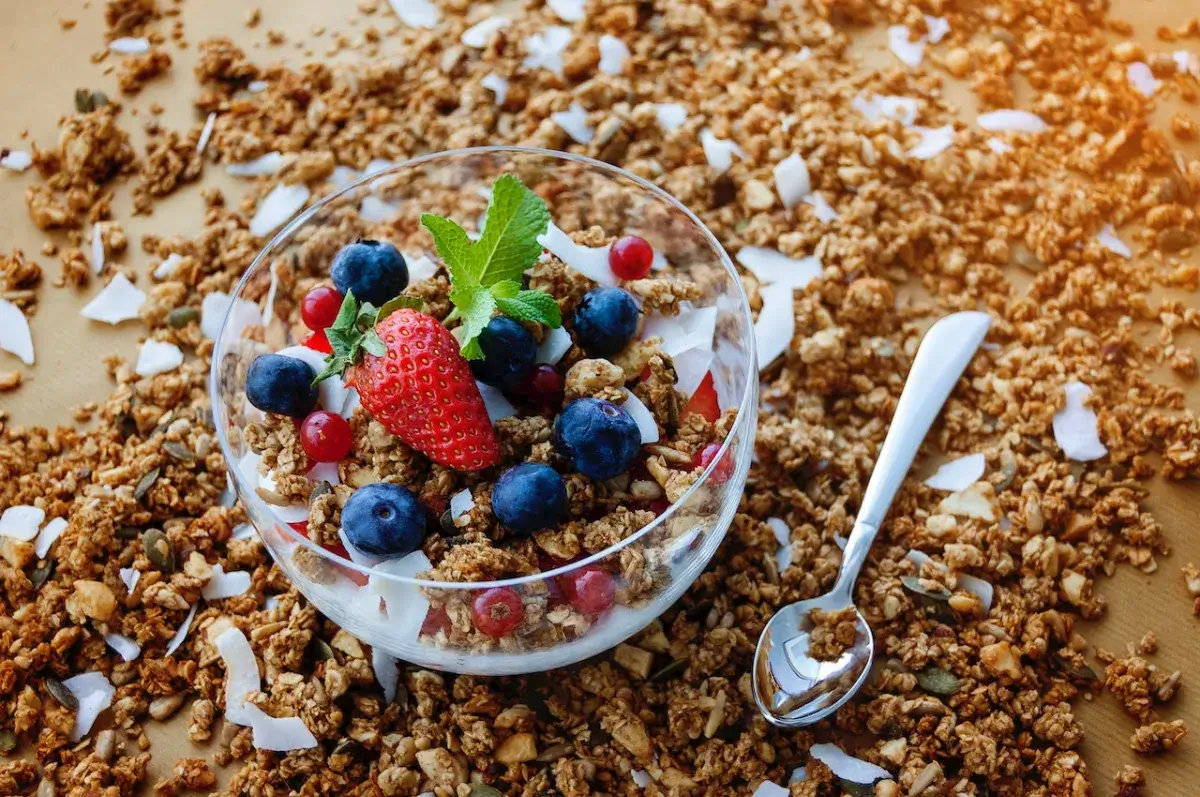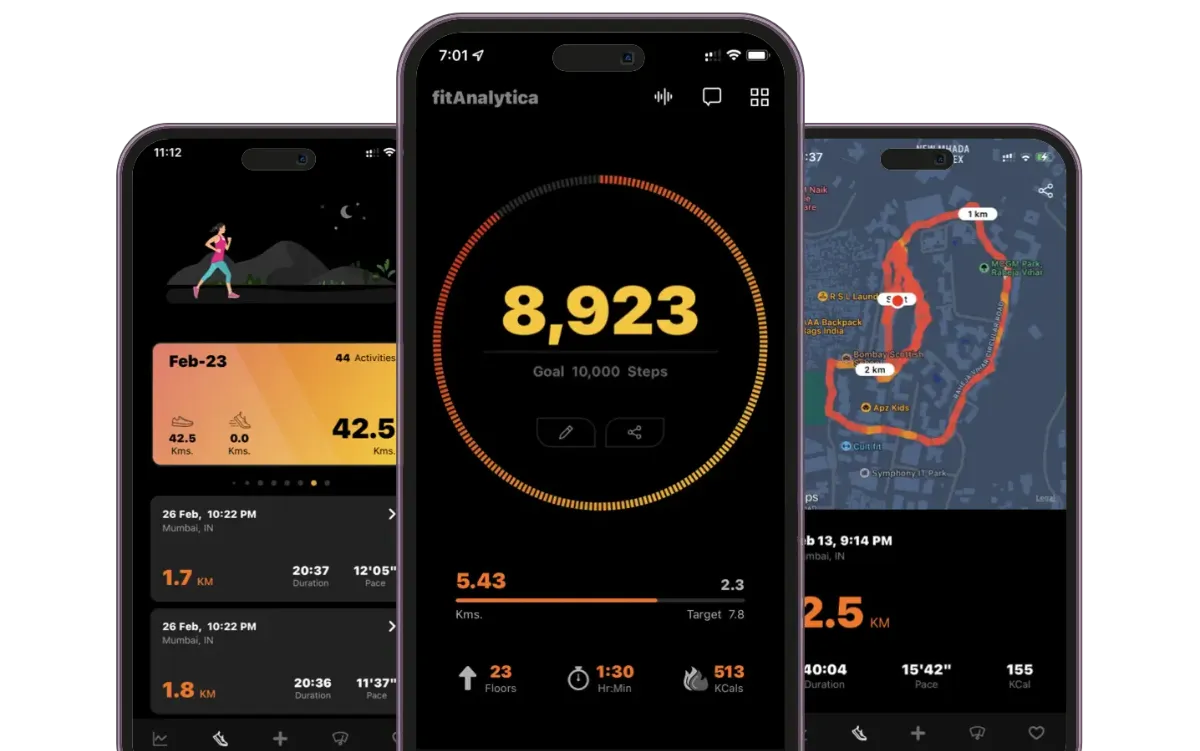Embarking on a journey to achieve your fitness aspirations enthusiastically and optimistically is commendable. You've come to the right place if you aim to shed those extra pounds swiftly while embracing a positive mindset. This article will empower you with 30 scientifically-supported ways to accelerate your weight loss journey, all while keeping your well-being at the forefront.
The path to getting "skinny really fast" should be guided by a sense of adventure and a commitment to maintaining a healthy lifestyle. By combining evidence-based strategies with your determined spirit, you can see remarkable progress in pursuing a more vibrant you.
From savoring nutrient-packed meals to engaging in invigorating exercise routines and practicing self-care, each tip resonates with the promise of better days. Remember, the aim here is not just rapid results but creating sustainable habits that contribute to long-term health and happiness.
Before delving into these 30 weight loss strategies, remember that your journey is unique. Embrace each change with positivity and openness, and don't hesitate to tailor them to your preferences. With a belief in your potential and a commitment to embracing a healthier lifestyle, you're setting yourself up for success and an exciting transformation that extends beyond the numbers on a scale. So, let's dive into these actionable steps, armed with positivity and the determination to unlock your true potential.
1. Begin Your Day with a Royal Breakfast, Follow a Moderate Lunch, and end with a Light Dinner.
Start your day by indulging in a substantial and energizing breakfast fit for a king. Fuel your body with nourishing nutrients to kickstart your metabolism and provide lasting energy. As the sun reaches the top, opt for a balanced and moderate lunch that maintains your vitality without causing lethargy.
As evening approaches, wind down with a light and easily digestible dinner. This approach aligns with your body's natural rhythms and supports efficient digestion and a night of more restful sleep. Prioritize this sequence to optimize your daily food intake and foster a harmonious relationship between your meals and your body's needs.
2. Incorporate Additional Protein into Your Dietary Intake

Elevate your dietary habits by introducing a richer protein profile into your meals. Incorporating additional protein into your daily intake offers a multitude of benefits. Protein supports muscle growth and repair and enhances feelings of satiety, helping you curb overindulgence in unhealthy snacks.
Opt for lean sources like poultry, fish, beans, and Greek yogurt to bolster your protein intake while maintaining a balanced diet. By making this strategic adjustment, you can promote a more sustained metabolism, foster better control over your appetite, and contribute to maintaining a healthier, more energetic lifestyle.
3. Give Priority to Whole and Unprocessed Foods
Emphasize selecting whole and unprocessed foods to nurture your body with optimal nutrition. These natural foods retain essential vitamins, minerals, and fibers, promoting overall well-being. Unlike processed alternatives laden with additives and preservatives, whole foods provide sustained energy and support digestion.
Incorporating fresh fruits, vegetables, whole grains, lean proteins, and healthy fats into your meals empowers you to make mindful dietary choices. By prioritizing these nutrient-rich selections, you'll enhance your health, detoxifies your body, and build a healthy weight-loss foundation.
4. Restrict Consumption of Processed Food Items
Exercise caution and limit your intake of processed foods to safeguard your health. These items, often loaded with additives, saturated fats, excess salt, and refined sugars, can contribute to various health concerns. By reducing your reliance on processed foods, you can better restrict calorie intake and promote weight management with numerous health benefits.
Opt for whole, fresh ingredients, as they offer nutrient-dense foods and fewer detrimental additives. Prioritizing unprocessed options supports your physical well-being and promotes healthy eating and a sustainable weight loss process in the long run.
5. Build Up a Supply of Nourishing Foods and Wholesome Snacks

Create a stash of nourishing foods and wholesome snacks to fortify your dietary choices. Stocking up on these options empowers you to make healthier selections when hunger strikes. Fill your pantry and fridge with nutrient-dense choices like fresh fruits, vegetables, lean meat, soy milk, chicken breast, whole-grain snacks, nuts, and yogurt.
By having a variety of nourishing, healthy foods more readily available, you'll be less likely to succumb to less nutritious alternatives and more inclined to make choices that contribute to your overall weight loss efforts.
6. Reduce Consumption of Added Sugars in Your Diet
Take a proactive step towards better health by reducing added sugars. Research indicates excessive sugar intake is linked to various health issues, including obesity, diabetes, blood pressure, and heart disease. Start by reading food labels and being mindful of hidden sugars in packaged foods and beverages.
Gradually reducing added sugars in your diet can improve energy levels, drop pounds, and minimize the risk of chronic diseases.
7. Stay Hydrated by Drinking Ample Water

Hydration is an essential component of your weight loss program. Start your day by drinking 500 ml of water empty stomach in the morning. Prioritize your hydration by ensuring you drink sufficient water throughout the day. Staying adequately hydrated offers a range of benefits, from supporting digestion and metabolism to enhancing cognitive function and skin health. Carry a reusable water bottle to encourage regular sips, and aim for at least eight glasses of water daily. Adjust your hydration level based on your activity level and climate.
Avoiding sugar-based diet drinks and incorporating herbal teas and water-rich foods like fruits and vegetables can improve your hydration goals. Proper hydration optimizes your body's functions, promotes well-being, and gradually reduces weight.
8. Enjoy Coffee Without Added Sugars for Refreshment
Indulge in the pleasure of coffee without the need for added sugars to invigorate your senses. Savor the rich flavors and natural energy boost coffee offers without compromising your health. Opt for black coffee or use unsweetened milk or milk alternatives to enhance its taste without excess sugar.
This mindful choice helps you stay alert and restricts calories and the potential negative impacts of excessive sugar consumption. By embracing this simple change, you can relish the delightful experience of coffee while supporting you to lose weight quickly.
9. Limit the Calories You Consume in Liquid Form
Exercise prudence by controlling the calories you consume in liquid form. Beverages like sugary sodas, fruit juices, and creamy coffee drinks can contribute a significant number of calories without providing the same satiety as solid foods. Opt for water, herbal teas, or drinks with minimal or no added sugars to quench your thirst without excess calories.
Prioritizing whole, nutrient-rich foods over calorie saturated fat-laden beverages can help you manage your weight and promote better overall health. By being mindful of your liquid calorie intake, you can make wiser dietary choices, lose weight, and better support your fitness goals.
10. Moderate Your Intake of Refined Carbohydrates
Take a balanced approach to your carbohydrate intake by moderating the consumption of refined carbohydrates. Foods like white bread, sugary cereals, and processed snacks are often high in refined carbs and more calories, leading to rapid spikes and crashes in blood sugar levels.
Instead, use whole grains like quinoa, whole wheat products, and brown rice. These choices provide more fiber, vitamins, and minerals, promoting steadier energy levels and better digestion. This adjustment supports overall health, maintains better body weight and blood sugar control, and avoids belly fat.
11. Avoid Skipping Meals to Maintain Regular Eating Habits
Cultivate a consistent eating routine by refraining from skipping meals. Skipping meals can disrupt your metabolism, lead to overeating later in the day, and cause fluctuations in blood sugar levels. Aim to have balanced meals throughout the day to give your body a steady supply of energy and nutrients.
Incorporate whole grains, lean proteins, healthy fats, and plenty of fruits and vegetables. Regular eating habits will help you lose weight fast, stabilize energy levels, and support digestion. Prioritize nourishment at regular intervals to promote overall well-being.
12. Embrace (Unsweetened) Green Tea for Added Health Benefits

Welcome the health benefits of (unsweetened) green tea into your lifestyle for an added boost. Green tea is rich in antioxidants and compounds that promote various health advantages, including improved metabolism, enhanced brain function, and potential heart benefits. Enjoy it without added sweeteners to experience its natural flavors and benefits fully.
Whether hot or cold, incorporating green tea into your routine can be a refreshing and healthful choice to lose weight. By choosing this beverage, you're hydrating yourself and contributing to a rapid weight loss journey.
13. Enhance Your Diet with an Array of Fruits and Vegetables
Elevate your dietary choices by incorporating a diverse selection of fruits and vegetables. These colorful, nutrient-packed foods provide a wide range of minerals, vitamins, and antioxidants essential for optimal health, losing weight, and avoiding nutrient deficiencies. Aim to fill your plate with various colors to ensure you get a spectrum of nutrients.
From leafy greens to vibrant berries, these foods support digestion, boost immune function, and contribute to weight loss. Whether enjoyed as snacks, salads, or main courses, embracing the abundance of fruits and vegetables in your diet is a simple yet powerful step toward a healthier and vibrant you.
14. Monitor Calorie Intake to Stay Informed
Stay informed about your dietary habits by periodically monitoring your caloric intake. While obsessively counting calories isn't necessary for everyone, occasional tracking can provide valuable insights into portion sizes and nutrient balance.
Utilize apps or journals to record what you eat, helping you identify patterns and areas for improvement. This practice can help you make more mindful food choices, maintain a healthy weight, and meet your nutritional needs. Balancing this approach with intuitive eating can contribute to a positive relationship with food and a more informed approach to nourishing your body and losing weight.
15. Choose smaller plates to manage your portion sizes effectively.
Control portion sizes by choosing smaller plates for your meals. The optical illusion created by a smaller plate can make your portions appear more satisfying, reducing the tendency to overeat. This simple strategy helps you maintain a sense of fullness while consuming fewer calories and promotes weight loss.
Fill your plate with nutrient-rich foods, including lean proteins, whole grains, and vegetables. Adopting this practice promote a healthy diet and cultivates a more beneficial relationship with food. Remember, what you eat and how you serve it can contribute to weight loss.
16. Experiment with a Low-Carbohydrate Dietary Approach
Explore the benefits of a low-carbohydrate dietary approach through experimentation. Lowering your carbohydrate intake, particularly refined carbs, can improve blood sugar levels and weight loss and enhance metabolic health.
Focus on whole foods rich in healthy fats, lean proteins, and fiber. Incorporate sources like vegetables, nuts, seeds, olive oil, and lean meats while minimizing sugary and starchy foods. By trying out a very low-calorie diet, no-carb approach, you may discover a dietary strategy that aligns better with your healthy weight goals.
17. Practice Slow and Mindful Eating for Better Digestion

Enhance your digestion and relationship with food by eating slowly. Take time to savor each bite, chew thoroughly, and notice your body's hunger and fullness cues.
This approach allows your digestive system to function optimally, aiding nutrient absorption and reducing digestive discomfort. Put away distractions, like screens or work, during meals to fully engage in the eating experience. Mindful eating can help you better recognize when you're satisfied, preventing overeating and supporting weight loss.
18. Integrate Eggs into Your Dietary Regimen for Added Nutrition
Incorporate eggs into your daily dietary routine to enhance your nutritional intake. Eggs are a rich source of minerals, essential vitamins (including vitamins D, B, & choline), and high-quality protein. They offer versatile options for breakfast, lunch, or dinner. Enjoy them boiled, scrambled, or in omelets with vegetables for a balanced meal.
Research indicates that eggs can contribute to feelings of fullness and aid weight management. However, balance your diet with various foods for a broad spectrum of nutrients. By including eggs, you're adding a nutritious and satisfying component to your meals.
19. Add Various Flavor and Zest to Your Meals with Spices

Infuse your meals with an explosion of flavors by incorporating diverse spices. These natural seasonings not only elevate taste but also offer potential health benefits. Turmeric, for example, contains curcumin, known for its anti-inflammatory benefits, while cinnamon may help regulate blood sugar levels. Experiment with spices like cumin, paprika, ginger, and garlic to create exciting and healthful culinary experiences.
Substituting spices for excessive salt or sugary foods and sauces can enhance the nutritional value of your dishes. By embracing this approach, you'll delight your taste buds and contribute to your overall weight loss program through the power of diverse and aromatic seasonings.
20. Consider Incorporating Probiotics into Your Diet for Gut Health
Contemplate the inclusion of probiotics in your diet to support gut health is essential for healthy weight loss. Probiotics are beneficial bacteria that aid digestion, boost the immune system, and promote a balanced gut microbiome. Incorporate sources like yogurt, kefir, sauerkraut, kimchi, and other fermented foods into your meals. These foods introduce live cultures that can improve gut function and rapid weight loss.
Before introducing significant changes to your diet, please consult with a healthcare professional and ensure it aligns with your individual health needs. Adding probiotic-rich foods to a healthy diet fosters a healthier digestive environment that can positively impact various aspects of a balanced diet.
21. Ensure You Obtain Sufficient Sleep for Overall Well-being

Poor sleep goes hand in hand with weight gain. Prioritize obtaining adequate sleep to optimize your overall well-being. Sleep is a vital pillar of health that supports physical, mental, and emotional functions. Try for 7-9 hours of quality sleep each night, as it facilitates cell repair, hormone regulation, and cognitive processes and avoids sleep deprivation.
Consistent sleep patterns can enhance mood, concentration, and immune function. Establish a relaxing bedtime schedule, limit screen time & create a restful sleep environment to promote quality sleep. By having quality sleep, you're investing in your body's rejuvenation and resilience, contributing to a healthier, more vibrant life.
22. Augment Dietary Fiber for Improved Digestive Health
If you want to lose weight quickly, enhance your digestive health by increasing your dietary fiber intake. Fiber boosts regular bowel movements, prevents constipation, and supports a healthy gut. Incorporate sources like whole grains, fruits, vegetables, legumes, and nuts into your diet.
These foods provide soluble and insoluble fiber, which aids in digestion and help maintain stable blood sugar levels. Gradually increasing your fiber intake can also contribute to feelings of fullness and promote weight loss. Remember to drink plenty of water alongside a higher fiber diet to ensure optimal digestive function. You're nurturing a healthier and more efficient digestive system by prioritizing fiber-rich foods.
23. Engage in Cardiovascular Exercises to Boost Fitness

Participate in cardiovascular exercises to elevate your fitness level and weight loss program. Activities like jogging, cycling, swimming, or brisk walking increase your heart rate, improving cardiovascular health and boosting endurance. Aim for at least 150 minutes of moderate-intensity cardio per week, as recommended by health guidelines.
Cardiovascular exercise helps burn calories, supports weight management, and enhances lung and heart function. Start slow if you're new to exercise and gradually increase intensity and duration. By incorporating heightened physical activity, you're investing in your overall fitness and weight loss success.
24. Include Resistance Training in Your Workout Routine
Incorporate resistance training into your fitness routine for rapid weight loss. Resistance exercises, such as weightlifting, bodyweight exercises, and resistance bands, enhance muscle strength, bone density, and metabolism. Aim for at least two days of resistance training every week, targeting different muscle groups.
This type of exercise helps tone and shape your body and contributes to improved posture and joint stability. Gradually increase weights and repetitions as you progress to challenge your muscles. Remember proper form and technique to prevent injury. Adding resistance training creates a well-rounded workout routine supporting strength, vitality, and overall wellness.
25. Incorporate Whey Protein for Its Healthful Properties
Integrate whey protein into your dietary regimen to lose weight fast. Whey protein offers a complete source of essential amino acids, ensuring a rich protein content. It supports muscle recovery, growth, and overall health. Incorporate it into smoothies, oatmeal, or post-workout shakes to enhance protein intake.
Whey protein may also aid weight management by promoting satiety and boosting metabolism.
26. Avoid Consuming Snacks Late at Night
Unhealthy snacks elevate weight gain. Steer clear of late-night snacking to support better digestion and overall well-being. Eating close to bedtime can disrupt your body's natural digestion process and lead to discomfort, indigestion, and potential weight gain.
Aim to finish your meal or snack at least 2-3 hours before bedtime to give your body ample time to digest. If hunger strikes, opt for a light and easily digestible option, such as a piece of fruit or a small portion of yogurt. Prioritizing this practice allows your digestive system to rest during sleep, contributing to better sleep quality and a more balanced relationship with food.
27. Quit Smoking & Drinking
Quit smoking and limit alcohol consumption to promote overall well-being. Tobacco cessation improves lung health and supports weight management by reducing cravings and boosting metabolism. Similarly, cutting back on alcohol reduces empty calories and improves your body's ability to burn fat.
28. Manage Stress
Stress lead to emotional eating or unhealthy habits. Chronic stress can trigger cravings for comfort foods, often high in sugars and unhealthy fats. Engaging in relaxation techniques, exercise, and mindful practices can help you cope with stress and prevent weight gain.
29. Use fitAnalytica - Aim to Walk 10,000 Steps Daily

Weight loss through walking or jogging requires pushing beyond a moderate intensity level. Engaging in these activities at higher intensities, such as brisk walking or jogging, elevates your heart rate and metabolism, resulting in more effective calorie-burning and fat loss.
Fitanalytica proves to be an invaluable aid in your weight loss journey. This pedometer tool meticulously tracks your steps and offers a comprehensive overview of your physical activity. Beyond step count, it provides insights into crucial metrics like calories burned, distance covered, floors climbed, and the duration of your workout. These details offer a clearer picture of your progress and help you set achievable goals.
Also, read The science behind 10,000 steps.
30. Be Positive
Remember that embracing these suggestions at your own pace and tailoring them to your individual preferences and requirements can significantly contribute to cultivating a healthier and more sustainable weight loss program. Progress takes time, and minor, consistent adjustments can lead to lasting positive changes.
Whether it's integrating nutritious foods, incorporating regular exercise, or practicing mindfulness, the gradual implementation allows for better adaptation and increases the likelihood of rapid weight loss. Prioritizing your well-being through personalized choices ensures that your journey toward a healthier lifestyle is manageable and effective, supporting you to become slimmer.
